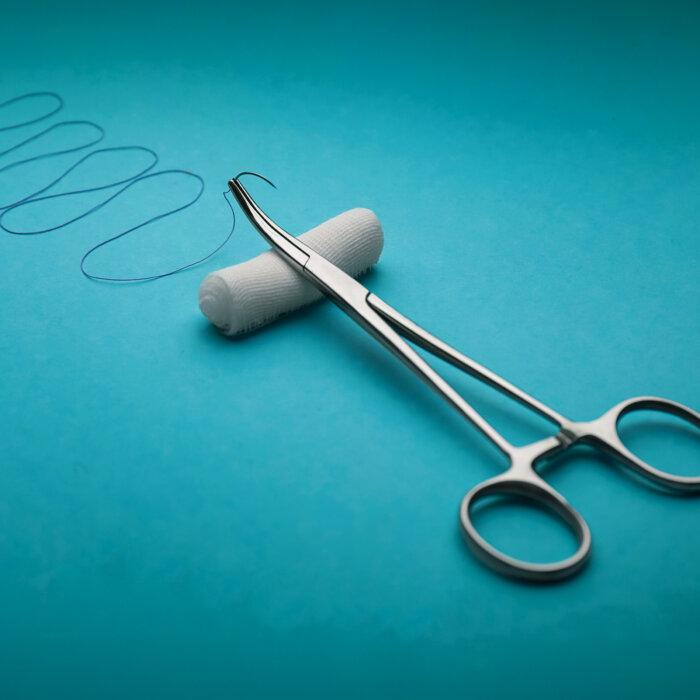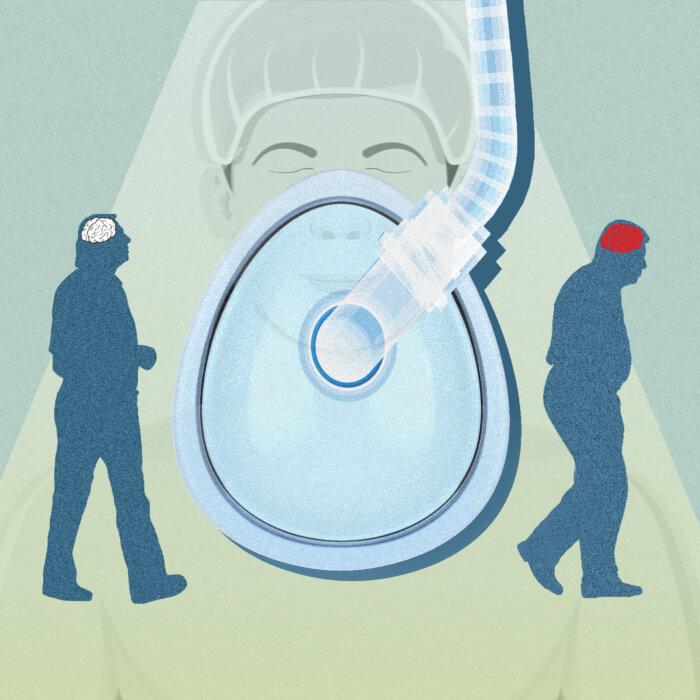A woman who was suffering from gallstones wanted to try a home remedy before considering surgery, but the surgeon “flat out told her that wasn’t going to work.”
“He wasn’t pushy. He was just a little bit condescending,” Dr. Hubbard told The Epoch Times. “I really respect him, but just reflecting on the experience, I realize that—for lack of a better explanation—there’s indoctrination, a training that you go through as a physician that puts you in a mindset that you know everything.”
The example illustrates the complexities surrounding surgery—a rapidly growing medical field mingled with serious risks and complications. It’s hard to quantify how many patients avoid cholecystectomies or other surgeries by delaying them and attempting other remedies, but it’s an area that many agree deserves examination.
Critics say there’s too big a push for surgery in situations in which it isn’t warranted. But it’s unlikely that you’ll hear that—or the consequences of choosing surgery—from recommending physicians.
The Expense of Surgery
From a financial standpoint, surgery costs everyone. Tax-funded Medicare spent about half of its budget on surgical care in 2014, according to a 2020 Journal of Surgical Annals analysis. The actual costs exceeded $120 billion for that year.The analysis pointed out that surgical care accounts for the greatest growth in Medicare payments, and that outpatient surgeries especially represent an area in which the government could recoup costs.
“Moving forward, future research should evaluate the extent to which spending on outpatient surgical care is driven by discretionary (versus non-discretionary) procedures. A better understanding of this will aid in the design of interventions to reduce surgery spending,” the authors wrote.
Major Cause of Death
In fact, the article makes the argument that the trauma surrounding major surgery should be counted alongside heart disease and cancer as a major cause of death.“An annual global mortality of around 8 million patients places major surgery comparable with the leading causes of death from cardiovascular disease and stroke, cancer and injury,” author Geoffrey P. Dobson wrote.
The article highlights studies and statistics regarding surgical risk, including 30-day readmission rates in the United States that range from 5.7 percent to 12 percent. Mr. Dobson also cited research showing that 14.4 percent of patients experience adverse events—one-third of which were preventable—based on a 2013 study of more than 16,000 patients in eight developed countries.
“If surgical complications were classified as a pandemic, like HIV/AIDS or [COVID-19], developed countries would work together and devise an immediate action plan and allocate resources to address it,” he wrote. “Seeking to reduce preventable deaths and post-surgical complications would save billions of dollars in health care costs.”
Unraveling Informed Consent
If these facts about surgery are unfamiliar, it might be because the system doesn’t incentivize informed consent or the time required to explain the realities and complexities of surgery with every patient.Informed consent is mutually beneficial for patients and surgeons, as the World Journal of Surgery editorial pointed out:
“By explicitly asking patients about their expectations for the procedure (for example, ‘to be rid of pain,’ or ‘to come home to my family’), we may better understand whether the patient’s expectations fall within the scope of possible post-operative outcomes. If we explicitly uncover such expectations, we may avoid a situation in which the patient expects the surgeon to achieve a perhaps unattainable goal, which may lead to patient dissatisfaction.”
Dr. Hubbard said surgeons who reject informed consent send a message that they don’t believe patients are intelligent enough to make decisions.
The physician-patient relationship can be very one-directional, Dr. Hubbard said.
Caring for the Whole Person
Dr. Hubbard moved from conventional medicine into an integrative model after observing the shortfalls of modern medicine.For example, when something unexpected happens during surgery, surgeons often have the option to pause the surgery and ask patients’ families what they should do, but this rarely happens.
Dr. Hubbard suspects that surgeons do what they want in more cases than not, especially if it interrupts their time.
Deeper, richer conversations beyond the operation are also valuable—something that Dr. Hubbard said was illuminated as he witnessed uncaring attitudes among health care workers.
In one situation, he was returning a black woman to her room and remarked to the surgical nurse that her hair was “jacked up”—unnecessarily and horribly shaved in surgical preparation. He was met with an arrogant response that she should be grateful to have her life and her hair is irrelevant.
Postures of Humility
In a 2017 Pharmacy & Therapeutics article about professional behavior in health care, author Matthew Grissinger wrote that disrespect often indicates an attempt at self-preservation motivated by insecurity, anxiety, depression, aggressiveness, or narcissism. Other reasons can be differences in communication styles, power dynamics, social biases, and current events.Such behavior, Grissinger wrote, contaminates the work environment as well as patient care, causing feelings such as fear, anger, shame, confusion, uncertainty, isolation, and self-doubt.
This kind of emotional stress can interfere with healing by creating physical symptoms such as insomnia, nausea, fatigue, and hypertension.
What You Should Know About Surgery
Health care workers who embody humility and honesty, and offer complete information before surgery give patients the opportunity to decide if the operation is the best solution. That sense of surety contributes to the healing process, as 60 percent of adverse events have been blamed on a lack of communication.- Alternative Treatments: Nonsurgical options—including physical therapy, medications, lifestyle changes, or holistic therapies—could be available. Even a new, lesser-known surgery or medical procedure could be an alternative to an invasive one that’s recommended.
- Risks and Complications: In addition to the risks of surgery, there are recovery risks and long-term complications.
- Risk of Anesthesia: Side effects and risks range from minor reactions to more serious complications.
- Recovery Time: The overall recovery timeline can be affected by pain levels, limitations, and rehabilitation that could impact daily life.
- Second Opinions: Surgery is serious and can warrant getting second and third opinions. Your recommending doctor may not actively encourage you to get a second opinion.
- Long-Term Effects: Overall health could be irreversibly affected, including a loss of mobility, function, or the need for further interventions, including drugs and additional surgery.
- Complications and Adverse Effects: An adverse effect that could create new health problems can emerge because of errors, misdiagnoses, inappropriate treatments, or inherent risks in medical intervention, including surgery.
- The Potential for Addiction: Your recovery protocol may include a prescription for painkillers that pose a significant risk for long-term addiction.












